Social Justice - Status in Madras Presidency | 11th Political Science : Chapter 12 : Social Justice
Chapter: 11th Political Science : Chapter 12 : Social Justice
Status in Madras Presidency
Status in Madras Presidency
During the same period, Chennai presidency came
under the direct rule of British Empire. Laws like ‘Ryotwari’ were made.
Moreover, tax collecting system was introduced. Further, military forces were
also instigated. In 1835, English was declared as official and administrative
language in India. Indians were appointed in the British Indian military
forces. Majority of the people who joined in military were non-Brahmins and
deprived communities.
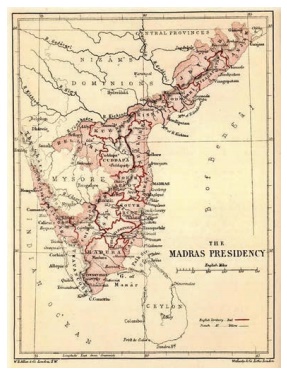
Although colonial British regime appointed Indians in military forces,
it hesitated to permit Indian languages in the educational institutions. This
untoward situation remained same until the end of the 19th century. People who are
fluent in English were appointed in these services. Apart from the Europeans,
Anglo- Indians and Brahmins were appointed in all government services.
Due to the establishment of ‘Jamindari’ and
‘Ryotwari’ system in the initial part of 19th century, ‘Landlords’, ‘Zamindars’
and other dominant groups spearheaded in entire India. All the above said are
“Caste Hindus”. “Caste Hindus” domination in all villages greatly affected the
villages and particularly, the downtrodden communities were kept aside from the
lands in all villages of India.
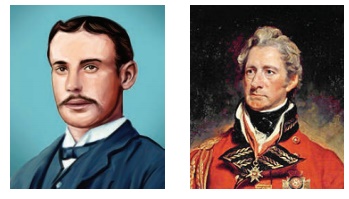
In this connection, a British officer ‘Francis
Ellis’ was appointed to submit the status report regarding ‘Ryotwari System’.
In similar way, another officer, ‘Thomas Munro’ also submitted a report related
to the ‘Ryotwari System’.
According to the reports, ‘Lands which were tilled by lower strata
people, were illegally occupied and acquired by ‘Zamindars’ and ‘Landlords’ and
thus caused quality-less farming and low level of yields. It is also reported
that Land Income Tax was also affected due to this acquisition. Moreover, the
deprived and downtrodden communities were checked-out of their lands and also
their children denied admissions in the schools and other educational
institutions.
In 1854, court delivered direction that there may
not be any restriction to admit children who belongs to lower caste groups. The
Caste Hindus and other dominant communities, however, didn’t obey the judgment
of the court proceedings. In 1865, Secretary of state for India in British
Parliament ordered for admission of children who belong to lower caste groups
but the condition remains unchanged.
Preferential Rights for the Downtrodden
In 1885, Madras Presidency Government declared financial
assistance policies for the downtrodden communities and also the government
oriented new schools for the lower caste people.
In the meantime, Tremancre, collector
of Chengalpet district submitted a report on the downtrodden communities of
Chengalpet. Those excerpts are: People of downtrodden community were at low
level in all aspects, particularly social-economic, educational spheres. Lands
are denied for them. They were not permitted to build houses for their own.
Educational opportunities were rejected. They are sold as slaves. Lots of lands
are kept barren. Due to this, income for the government has been diminished. To
increase the income of the government, lands can be distributed to the people.
There were so many recommendations present in the
officers’ report. In 1892, this report was considered and accepted by the
government. Accordingly 12 lakh acres were distributed to the lower caste
groups. These lands are called as “Panchami.” Schools for lower caste groups
are called as “Panchamer School”.
“Panchamer” means people who are out of Varna System or
excluded communities. ‘Ayothidasa’ and ‘Singaravela’ opined that “Panchamer
Schools” can be called as “Adidravidar” schools. Since it is the traditional
name carved to the category.
British India in the end part of 19th century supported Brahmin
development in all spheres, whereas minorities were denied opportunities in
education, society, power and employment sectors.
The Non-Brahmins, particularly minorities (lower
caste) who studied in the modern educational institutions were dissatisfied
with the government’s biased stand. They demanded representation for lower
caste groups in government services.
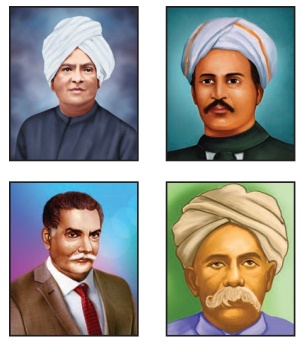
Those people who demanded for appropriate representation are Ayothidasa,
Singaravelar, Rettamalai Srinivasan, Pitti Theagarayar, Raja of Panagal and
many others. Demands put forth by these people were accepted in 1892. Community
based representation order was issued in all departments of Madras Presidency.
This order is called 128(2). The order has to be implemented in all parts of
Chennai Presidency, declared the government.
The efforts taken towards “education to all” in
Tamilnadu also spread over to other states of India. Leaders like Jyotirao
Phule, Savithribai Phule took onerous efforts in Maharastra for educating the
depressed and downtrodden communities.
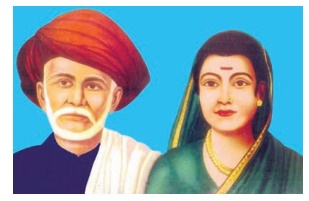
Justice Party
There were more applications forwarded in 1913 to
Royal Commission which was headed by Alexander Cardow. Apart from Madras
Presidency, Rangoon Thravi Association and others also submitted their
application with demands to the commission. All applications emphasized for
appropriate representation in employment for backward, downtrodden and
religious minorities. Dr. Natesan, Pitti. Theagarayar, T. M. Nair tried to
submit and a report on the burning issue of the minorities and low caste
groups. P. Theagarayar has written and published it as "Non-Brahmin
Manifesto" in December, 1916.
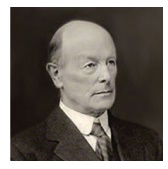
In 1916, Pitti. Theagarayar, T. M. Nair and others
started South Indian Liberal Federation for the welfare of the Non-Brahmin
communities. A magazine “Justice” was also published by this Federation to
express their thoughts and ideas. Later on, this Federation was popularly known
as “Justice Party”.
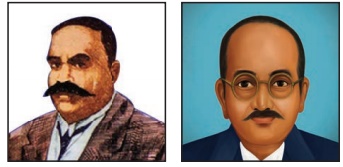
This movement spread out “communal representation
for Non-Brahmin in education, and employment sectors. In 1915, Justice Party
submitted a petition in which it condemned the domination of English and
Sanskrit in higher education. Further they demanded to include Tamil and other
languages in higher education.
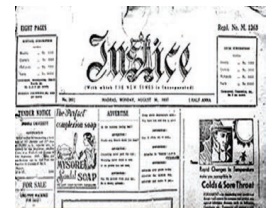
In 1917, 54 Associations met the representative members of British
empire and demanded “Fair Representation” for Non-Brahmin communities and other
minorities. Moreover, “Communal Representation” was demanded during multiple
conferences.
First Communal Representation Order
During the rule of Justice Party in Chennai
Presidency, the demand for communal representation reflected in vigorous
manner. The prolonged struggle for communal representation by Justice Party and
wide support from the people propelled the central government to make
resolution in this regard in 1921. This resolution, later on was called as
Communal Representation Decree.
It is the red lettered day in Indian history, lower
caste groups, who were suppressed and deprived of Social and Economical
condition for many centuries had fullest confidence to lead their life with
self-respect and dignity by this decree.
A resolution was submitted by Munusamy the member
of legislative assembly in Chennai. The Resolution reads; "Non-Brahmins
with minimum educational qualification should be provided with employment
opportunity. Non-Brahmins specifically, Christians, Muslims and lower caste
groups to be appointed in all government services. For this, a permanent order
should be legalized. If salary is above Rs.100, this order should be
implemented for 7years until it reaches 75% of the population". With
regard to this resolution, R.K.Shanmugam stated that “If this historical and
land mark resolution is implemented, the future generation may really
appreciate our truthful efforts towards emancipation”. In supporting this view,
Dr.C.Nadesan voiced that “If fair representation is not provided for our
people, we will not pay taxes”.
Periyar, EV.Ramaswamy, a staunch supporter of
congress party also eulogized the ideas of Justice Party, he expressed the same
demand in Congress Party. In 1925, during the Kanchipuram Congress Party
Conference, Periyar passed a resolution regarding communal representation in
education and employment. Periyar came out of congress party, since his
resolution was rejected by the high command.
In 1928, during the leadership of R.Muthiah,
(Justice Party), Communal representation was passed and implemented in all the
government departments.
First Amendment
In the aftermath of the effective implementation of
Indian Constitution, in 1951, Mr. Senbagarajan filed a suit in the High Court;
related to the denial of Medical Seats. He also mentioned that, communal
representation is the reason for the denial of his seat.
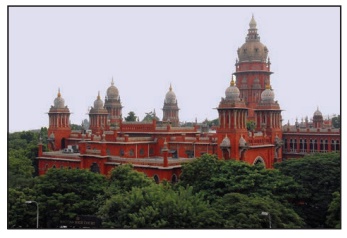
The High Court gave its Verdict that Communal
representation decree is against the constitution and to be abandoned. In
addition to that, Supreme Court also sided with the same Verdict. Reservation
Policy on the basis of caste was abandoned due to the Verdict.
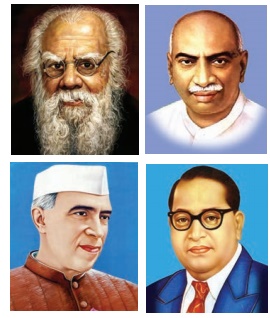
State wide protests erupted in Tamilnadu against
the Verdict. E. V. Ramasamy, demanded for an amendment in the constitution. It
is due to efforts of Periyar, Tamilnadu congress committee President Kamaraj,
Prime Minister Jawarharlal Nehru and Ambedkar, an amendment was made related
with the extension of Reservation Policy. This was the first Amendment in the
Indian Constitution. Due to this, backward and other communities retained the
opportunity of reservation.
According to articles 15 and 16 of Indian
Constitution, "Socially and economically backward people can be provided
with special privileges". This provision made Nehru to come with First
Amendment in the Indian Constitution.
Accordingly, sub-sections 15 (4) and 16 (4) were
included in the constitution. After the Amendment, from 1951 onwards Backward
Communities receive 25% and Lower Caste 16% respectively due to reservation
policy.
Expansion of Reservation
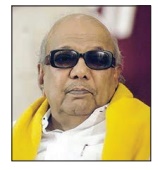
Under the Chief Ministership of M.Karunanidhi, a
commission was constituted under the Chairmanship of Sattanathan to take into
account on the welfare of backward community.
It is on the basis of the recommendations of
Sattanathan commission, backward community got 31% and SC/ST received 18% as
reservation in 1971.
In 1979, Social Welfare Department of Tamilnadu Government issued an
order (MS No.1156, Dated 02.02.1979). According to this order, annual family
income of backward community was fixed as Rs.9,000/-. Later on, that order was
repealed.
A new order was issued, in which reservation for
backward community was increased from 31% to 50% and for SC/ ST it is 18%. To
sum-up, 68% reservation came into effect in Tamilnadu.
In continuum with this, in 1989, another suit filed
in Supreme Court with regard to allotment of separate reservation for Scheduled
tribe (ST) community. In this case, Supreme Court of India delivered the
verdict by which, backward community, most backward, scheduled caste and scheduled
tribes received 30%, 20%, 18% and 1% respectively. The entire reservation was
changed combinedly and 69% came into effect in Tamilnadu.
Reservation in Central Government: Mandal Commission
The central government under the Prime Ministership
of V.P.Singh consented with the recommendations of Mandal Commission. The
Government issued an order which confirmed 27% reservation for Backward
Community in Central Government Services.
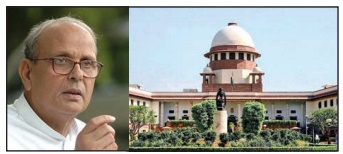
In opposing this order, Indira Sawhney, filed a
suit stating the order breaches the constitutional provisions. She also added
that reservation policy overrides the principle “All are equal before Law”.
Supreme Court delivered a clear verdict that 27% for backward community
in Central government services can be legalized. Further it states, “the
reservation should not reach beyond 50%”.
The Supreme court of India fixed 50% as ceiling for
reservation policy, whereas it was not mentioned in the constitution. Moreover,
the highest ceiling of 50% can also be discharged.
Thus the Judgment says
“Although 50% is the ceiling fixed for the
reservation in central government services, it may be changed, taking into
account the diversified communities and abnormal situations of this nation”.
“People who are distant, those who could not mingle
with the mainstream society or without opportunity, unique in culture may be
exempted from this ceiling fixed by the Supreme Court.
50% of the ceiling may be exempted, said the same
judges who delivered the famous verdict in this sensitive case.
That said, a member of consumer trust, K.N. Vijayan
from Tamilnadu filed a suit stating, 69% reservation in Tamilnadu is given
against the Supreme Court Verdict. Supreme Court, however, in its Verdict
mentioned that Engineering and Medical Colleges should not be provided
reservation more than 50%. It also issued Interim prohibition for the
reservation.
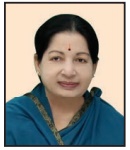
It was similar with the untoward happenings during 1951, which prompted the state government under J.Jayalalitha who passed a bill in the state assembly by citing the reference from directive principles of state policy (Article 31(c)).
The bill on 30.12.1993 was given consent by the
President of India on 19.07.1994 by which 69% reservation received fullest
legal protection. To avert further filing of suit against Tamilnadu Government,
it endeavored to incorporate reservation policy in IXth schedule of the Indian
Constitution.
Parliament passed the 76th Amendment in which
reservation policy of Tamilnadu Government was incorporated in IXth schedule of
Indian Constitution. Further it came into retrospective effect from November
16, 1992.
Reservation for different communities is a
temporary effort to get place in power sector. To attain social change and
social ideals, caste hierarchy has to be demolished and eternal equality to be
established. One among the means to attain permanent equality is “Inter-Caste
Marriages”. Marriages happening within caste may further strengthen caste
system and serve as an obstacle for the equal society. Casteless marriages and
lateral cum ideal thinking are the best contrivances for making radical social
change.
Backward classes Commission
According to article 340 of Indian Constitution,
President of India can appoint backward classes commission to identify socially
and educationally backward groups and also to submit recommendation related to
their standards and states.
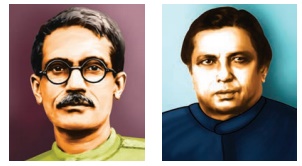
Hitherto, the Indian government has constituted the
backward classes commission.
1. Kaka Kalelkar Commission
Kaka Kalelkar Commission was the first one
constituted in 29.01.1953. There were 11 members including the Chairman
Jawaharlal Nehru who tabled the report submitted by this commission in the
Parliament.
2. Mandal Commission
Central Government under the Prime Minister-ship of Morarji Desai
constituted Subindeswari Prasad Mandal Commission on 20.12.1978. This is the
second such Commission established for the backward community. S.S.Gill was
appointed as the Secretary of this Commission.
It is in order to identify the condition of
backward community; a group was constituted under the leadership of B.B.Mandal
in 1978. The group travelled all over the nation. This Commission on the basis
of 11 basic reasons identified 3743 castes which comes under backward
community. Castes were identified on the ground of peoples’ status in education
and society.
Indira Sawhney V. Union of India AIR 1993 SC 477
v Also
known as Mandal Commission Case.
v On January, 1979 under the Chairmanship of B.P.Mandal, the second Backward Classes Commission under Article 340 was appointed by the Union
Government headed by Prime Minister Morarji Desai.
v One of the major recommendation made by the
commission was that, besides the SCs and STs, for
other backward classes which constitute nearly 52% of the population, 27%
government jobs are be reserved so that total reservation for all, SC,ST and
OBCs, amount to 50%.
v No action was taken on the basis of the
Mandal Report for long after it was submitted, except that it was discussed in the Houses of
Parliament twice, once in 1982and again in 1983.
v On August 13, 1990, the V.P.Singh
Government at the Centre issued an office
memorandum accepting the Mandal Commission recommendation and announcing 27%
reservation for the socially and educationally backward classes in vacancies in
civil posts and services under the Government of India.
Mandal has written in the preface of the report
which reads, “Madras is a pioneer state in communal representation. It has
given representation for backward classes”. We may infer that Tamilnadu is the
birth place for Social Justice and serve as a great pioneer for all other
states.
52% of the backward communities in India has to be
provided with 27% reservation, remarked Mandal Report. This reservation was
implemented by V.P.Singh Government on 13.08.1990 in all Government (Central)
Services. Due to this order, backward communities who are backward in social
and educational sectors entered into central services.
Promoting Social Justice
In order to achieve social justice, it is often
suggested that reservation policy is an important tool. We must realize that
reservation in education and in jobs is one of the methods to achieve ‘Social
Justice’ and not the only method. Social Justice must necessarily premise upon
the idea of egalitarian philosophy that no one is inferior or superior to
anyone by birth.
Those who have been benefitted extensively by the
philosophy of ascriptive status (status based on birth) must realize that such
status cannot be part of a modern world; to be a modern person what is more
important is to have the consciousness of being equal to everybody around us.
Unfortunately ‘modern’ is being equated with latest electronic items and luxury
items we possess. Having latest gadgets will not make us modern. For India to
become a modern nation, this radical transformation is required more than
anything. That is why the social justice is organically embedded in the idea of
modern India.
Related Topics